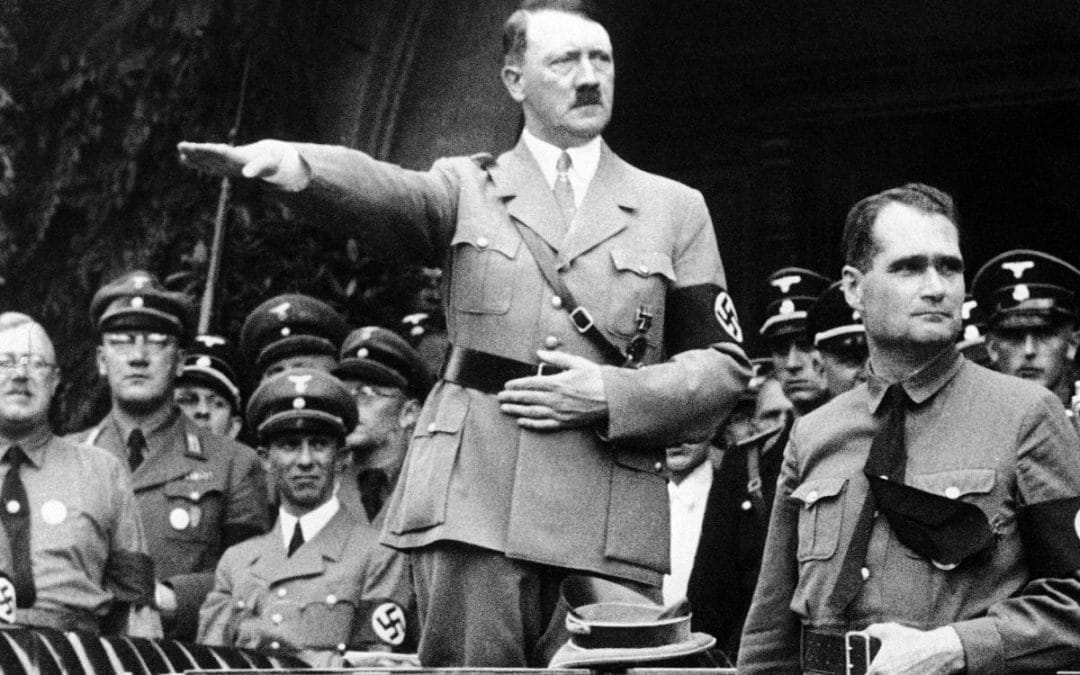Nihilism is born of hatred and resentment. It seeks to destroy. Strauss notes, however, that German nihilism was not absolute nihilism, which must ultimately result not only in the destruction of the “other” but also in the destruction of one’s own self through either individual suicide or a Jonestown-like collective suicide. Pure nihilism represents the highest form of self-hatred and self-abnegation, but German nihilism, particularly in its Nazi form, did pursue something rather than Heidegger’s “das Nichts” (nothingness). The Nazis did seek a “positive” value: their nihilism was mixed with a particular form of hedonism, namely, sadism. According to Strauss, there is reason to believe “that the business of destroying, and killing, and torturing” was a “source of an almost disinterested pleasure to the Nazis as such,” that they derived a “genuine pleasure from the aspect of the strong and ruthless who subjugate, exploit, and torture the weak and helpless.” They loved to hate, destroy, and to make others feel pain and to suffer.But German nihilism was not simply about destruction for the sake of destruction or death for the sake of death. Its ultimate political goal was, as Strauss noted, German world-domination through war for the sake of war. Martial conflict, the young nihilists argued, brought out the best in men. As Strauss put it,Read the rest of German Nihilism, American-Style."The admiration of the warrior type as a type, the unconditional preference given to the warrior as warrior, is however not only genuine in German nihilism: it is even its distinctive feature. Our question: in favor of what does German nihilism reject the principles of civilization as such must therefore be answered by the statement: that it rejects those principles in favor of the military virtues."
Self-sacrifice and self-denial represented the highest form of moral good for the German nihilists and the primary virtue was courage. Strauss was correct to see that the preference for war over peace and war for the sake of war led “for all practical purposes” to “nothing other than destruction.” Kant’s perpetual peace would be replaced by Nietzsche’s perpetual war. But if war—and all that comes with it—is a good in itself, then there can be no justice, only the will to power and the desire to destroy. The young conservative revolutionaries saw in the future not the return to an old past but a new beginning, one for which the end justified the means.At the deepest philosophical level, German nihilism as it was birthed in Nazism represented “a return to a pre-modern ideal, but this pre-modern idea was not to be found in Socrates, Plato, or Aristotle. Its true origin, according to Strauss, was to be found in “pre-socratic philosophy” as described by Nietzsche in The Birth of Tragedy. Here, Strauss pulls no punches: “The relation of Nietzsche to the German Nazi is comparable to the relation of Rousseau to the French Revolution.” And of course, Nietzsche is the link to twenty-first century, right-wing nihilism—American-style.[...] One hundred years after Weimar, the United States of America seems to be entering its own Weimar state of mind, where the forces of the progressive or nihilist Left and those of the reactionary or nihilist Right are competing against each other to destroy the tottering remnants of a free society.
Channeling Leonard Peikoff's The Cause of Hitler's Germany, Professor C. Bradley Thompson writes these powerful words in his essay “German Nihilism, American-Style”:

